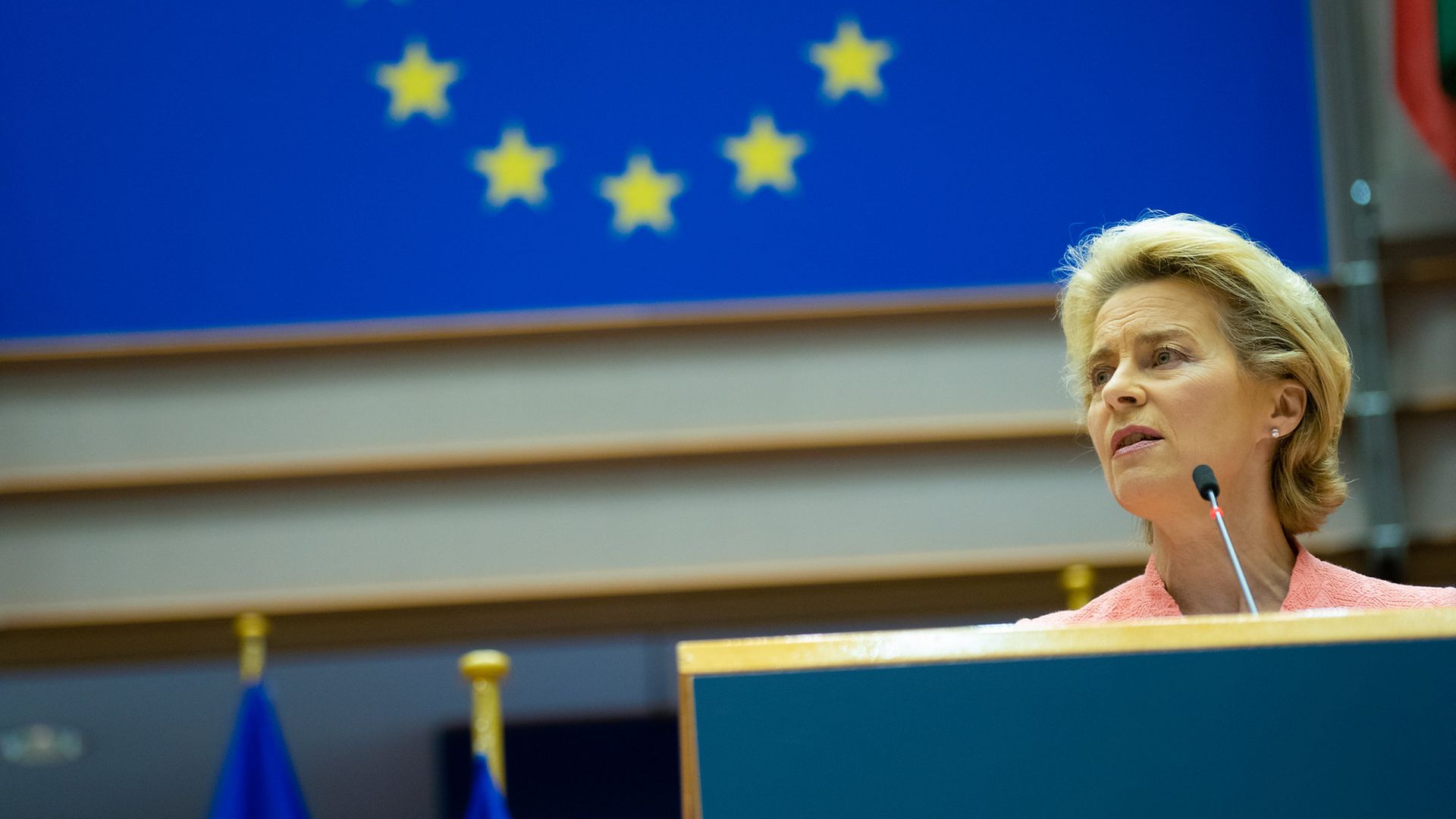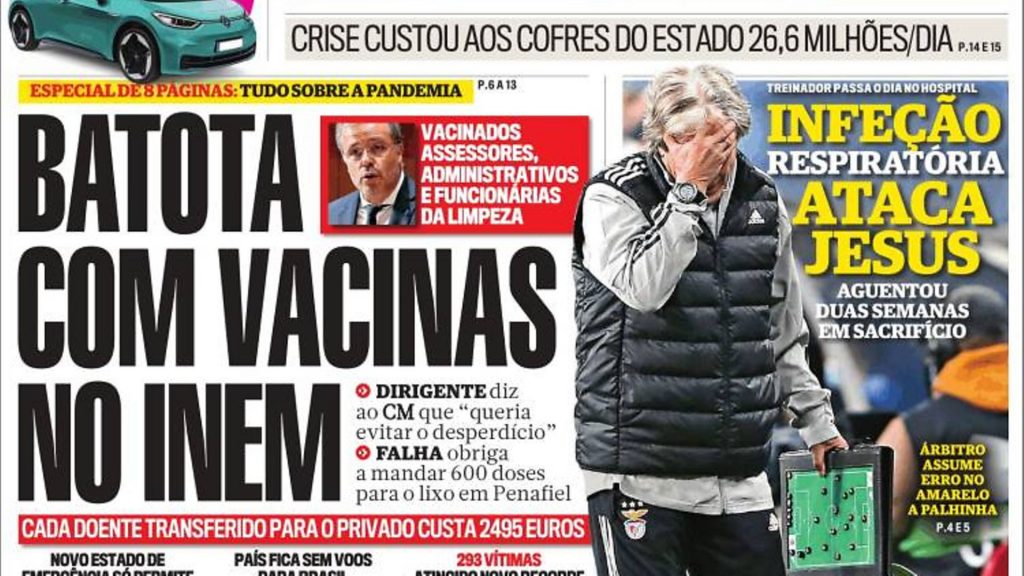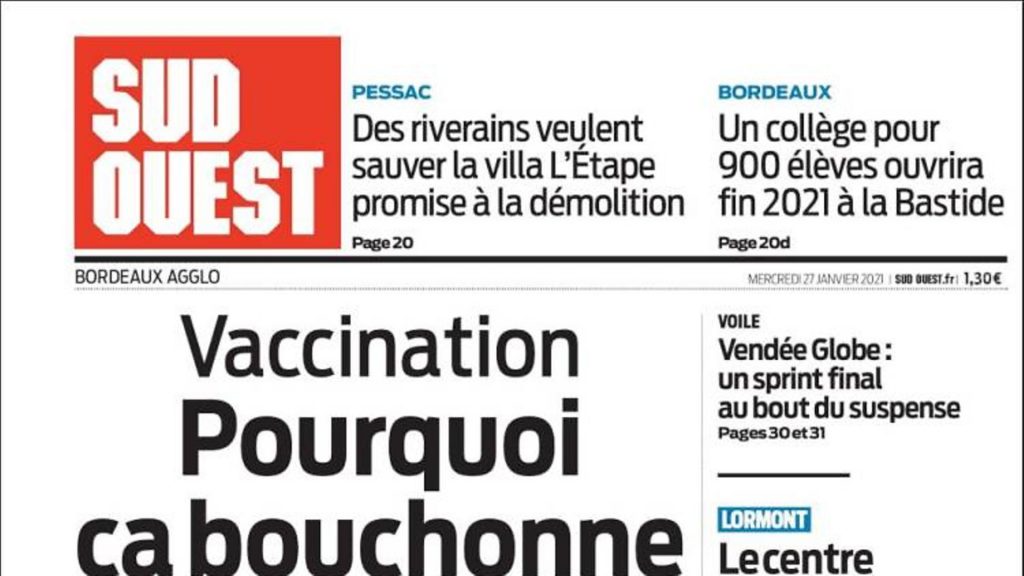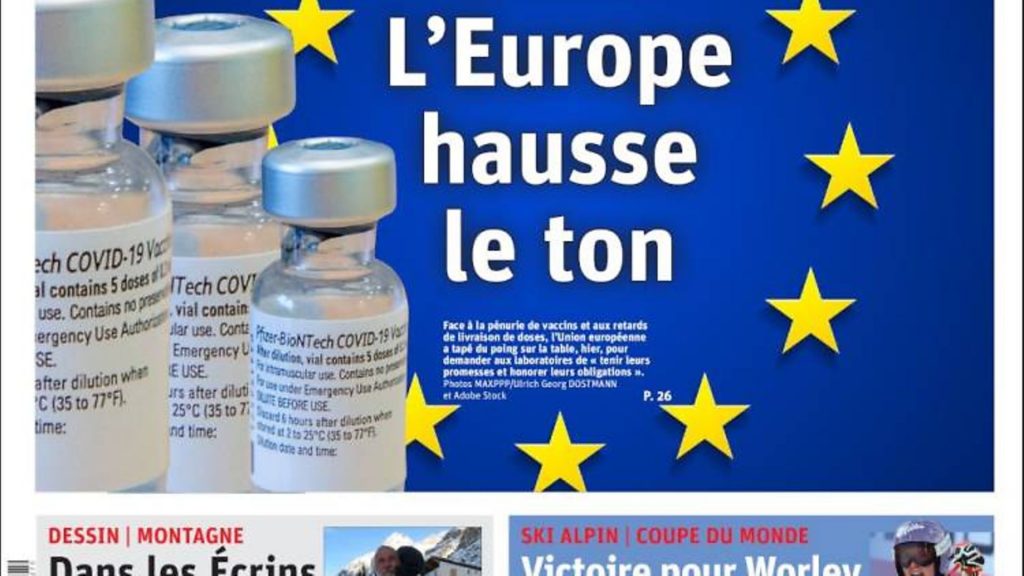
CATHRIN SCHAER on how the continent sees its vaccine troubles.
While Brexit fans were busy trying to shout “I told you so” across the Channel as loudly as possible, following the recent AstraZeneca stoush, Europeans were – as they so often are – more worried about their own backyards than being in a race with Britain.
There is no doubt that in almost every large European country there has been concern about the pace of vaccinations. This week leaders in several EU nations held meetings to assess their vaccination and lockdown strategies.

In Germany, chancellor Angela Merkel called a ‘vaccine summit’ on Monday so that federal and regional politicians could meet with pharmaceutical company representatives and come up with some sort of realistic schedule. The meeting did not prove any sort of panacea – attendees were told that it simply is not possible to ramp up production as quickly as everyone would like, even if vast sums of more money were to be thrown at the problem.
The day after, German commentators criticised the meeting as a mere distraction from what tabloid Bild takes great delight in calling the “vaccination debacle”.
Despite all that though, Merkel did promise that by the end of this summer, every German would have the opportunity to be vaccinated. The EU’s Health Commissioner Stella Kyriakides did similar, telling the meeting that the goal of vaccinating 70% of adults in the EU by the end of summer was possible.

Similar conferences took place in Italy and Austria and similar headlines, querying the speed of the vaccine rollout, could be found on almost every European newspaper.
Many ran stories about the AstraZeneca debacle and tried to explain why the British vaccination programme was ahead of the EU’s.
The AstraZeneca success story is the other side of the coin of a disaster that has seen more than 100,000 deaths from Covid-19 in the UK, the worst toll in Europe, Corriere della Sera explained in their version. That is “a debacle for which [Boris] Johnson bears full responsibility,” the paper continued. “But if in the end, he manages the vaccination of the country and finally restarts the economy, it is likely that he will be judged for this instead: ‘inept Boris’ could turn out to be Boris, the national hero.”

In almost every country there were also questions asked about the role of the European Commission, the body that takes care of the day-to-day running of the EU after political decisions have been approved by national leaders and the European parliament.
“The [European] Commission is accused of having bought vaccines in too small quantities and too late,” Le Monde alleged in a Tuesday interview with beleaguered European Commission president Ursula von der Leyen. Others added ‘too stingy’ and ‘too bureaucratic’ to the list of complaints.
Von der Leyen is taking much of the blame for recent events, especially after last week’s ill-judged and hastily-withdrawn decision on vaccine export controls over the Northern Irish border.

As she has in all the other interviews she conducted this week – and there were a lot – von der Leyen continued to back the EU’s vaccine-purchasing strategy. Several EU countries, including France and Germany, started out buying vaccines alone, but eventually it was decided that the EU needed to purchase and authorise vaccines as a bloc. This solidarity meant approvals of all kinds took longer and the lack of some form of unified emergency leadership in the EU, where slow and steady is the most regular speed, was felt.
In answer to many of the same questions, von der Leyen just kept repeating the three magic words behind the EU’s decision on vaccines: Global. Common. Good.
And then after a few days of von der Leyen not really apologising, for most of Europe, it was over. Reading the headlines around the continent and it was clear Europeans had other things to think about: the collapse of the Italian government, Portugal’s terrifying infection rates, footballer Lionel Messi’s outrageous contract with Barcelona.
If the British are still feeling simultaneously outraged and self-congratulatory about the events of late last week, it may well be because, amid piles of rotting fish and fruit and an overly infectious Covid-19 variant, they just need some good news.
What do you think? Have your say on this and more by emailing letters@theneweuropean.co.uk
Warning: Illegal string offset 'link_id' in /mnt/storage/stage/www/wp-includes/bookmark.php on line 357
Notice: Trying to get property 'link_id' of non-object in /mnt/storage/stage/www/wp-includes/bookmark.php on line 37






